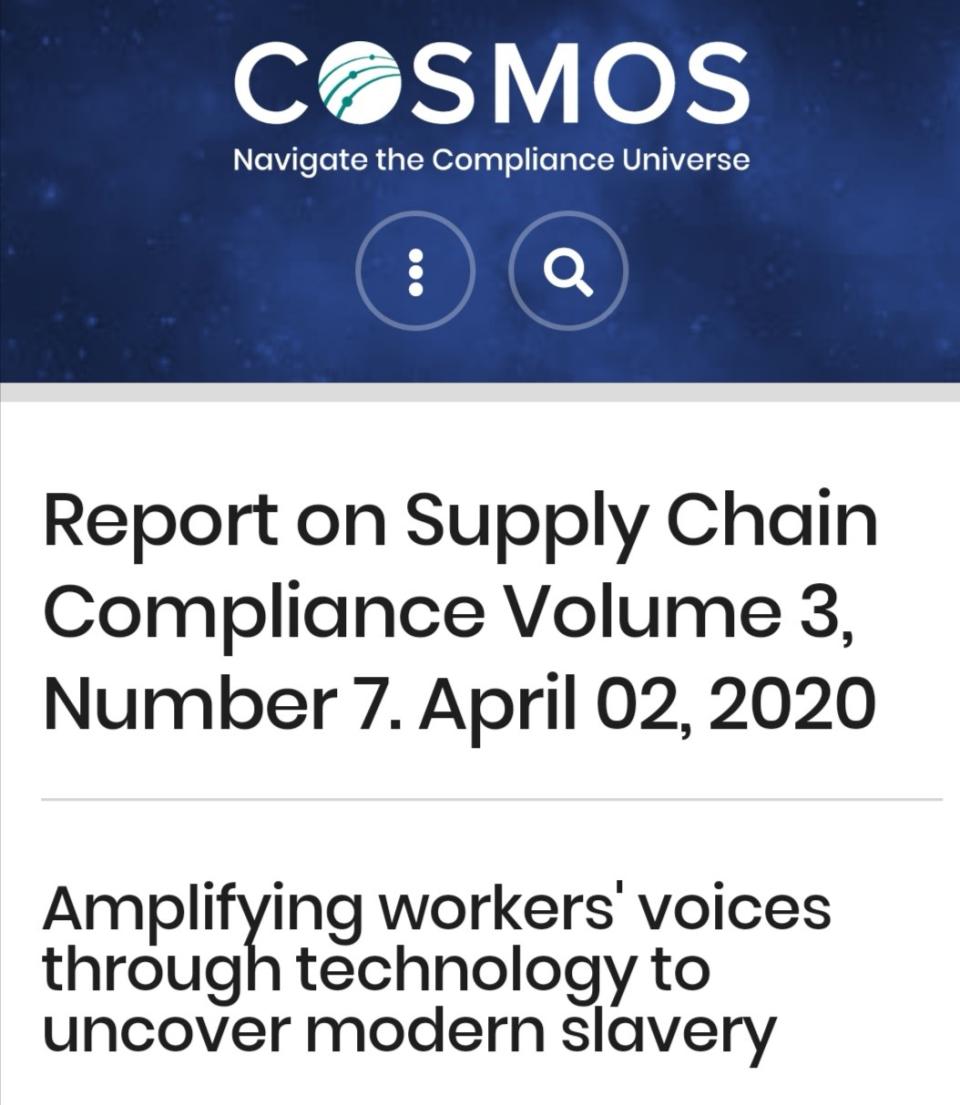“Workers were too afraid to talk, but they all needed help.”
For six years, Piya – a Thai worker and former employee of a processing factory in Southeast Asia – did four hours of daily unpaid overtime. She never asked for additional pay or spoke out against her supervisor, too worried that she would be fired. A new report published by The Mekong Club and the United Nations University Institute in Macau (UNU-Macau) via Compliancecosmos.org surveyed social auditors – a 50-billion-dollar industry – working in 16 Asian countries. As the number of modern slavery victims in private economies with stories like Piya’s is estimated at 16 million, audit worker interviews are a critical pathway for a worker’s voice to reach corporate headquarters. The new report unveiled flaws in interview methods used across mobile apps. The most common flaws cited in the brief are time constraints during factory visits, the lack of privacy during interviews, workers appearing to be coached and not feeling safe enough to speak out, communication and language barriers, and a lack of consistent worker voice analysis methods. The report found that these flaws lead to an overall lack of frequency, privacy, confidentiality and consistency in workers’ interviews during social compliance audits. Therefore victims—and exploitative factories—slip under the radar.

The report chose to analyse mobile apps because of their consistent data collection and storage methods. However, it is unclear whether they can be representative of a diverse workforce, or whether the findings of these apps will actually allow for further investigation of reported issues to ultimately help workers leave an exploitative situation. The report contextualised this new data set within existing studies provided by West Principles, Open Society Foundation, the Issara Institute, and former UNU-Macau projects.
The article concludes that technology must be developed and implemented with caution, with preassessments of existing capacity and respect for current ecologies of communication among the communities where it is implemented.
The Apprise Audit project is a partnership and close collaboration between UNU-Macau, The Mekong Club, and brands working in global supply chains to end modern slavery and support the achievement of the sustainable development goals, particularly goals 8 and 17.
The report, “Amplifying workers' voices through technology to uncover modern slavery,” is available here: https://bit.ly/2VqVyOv.

